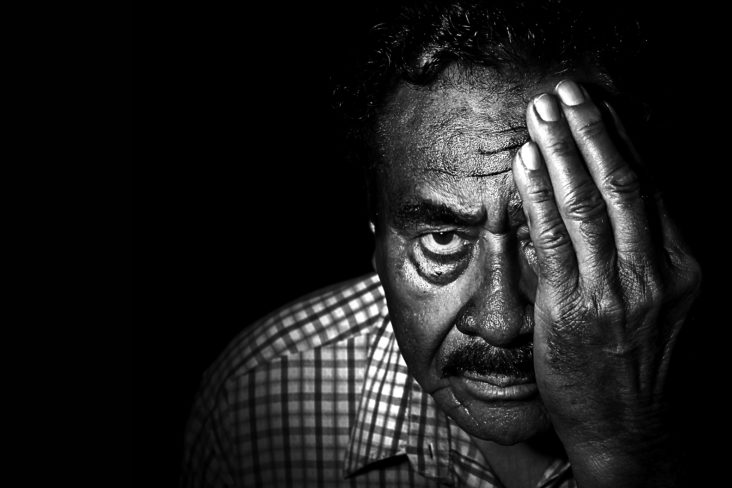Child Anxiety – Divorce Therapy for Children

Going through a divorce is stressful enough for the couple involved, but when children are added to the mix, it can bring a youngster’s fears to the forefront and trigger a cycle of child anxiety. The youth suddenly finds his or her world fracturing apart as the family divides into separate households. And, often the child has to adjust to living in a new home or going to a new school in addition to coping with their parent’s split.
Media-Related Post Traumatic Stress Disorder

Veterans of the Vietnam war have sadly raised our awareness of the existence of Post Traumatic Stress Disorder (PTSD). PTSD is a chronic, sometimes lifelong condition resulting in pathological changes in mood, thinking and behavior. It can be incapacitating and lead to job loss, family turmoil and dissolution, poor quality of life and often suicide.
Separation Anxiety and the Transition to College
We’ve passed the midpoint of the summer vacation break and parents and children are beginning to think about the upcoming school year. This is the time to start planning for new clothes and school supplies, including the dorm room items you’ll need if your child will be going off to college in the fall. Yet, […]
Complex PTSD

The majority of us have heard about PTSD (Post-Traumatic Stress Disorder), the condition that can occur when someone is exposed to a situation over which they had little or no control and from which there was little or no hope of escape. It is often associated with members of the military who have witnessed the horrors of battle, or with people who have endured an extreme physical or emotional trauma. PTSD can occur after experiencing even just one threatening situation, such as being involved in a car accident. But, what about those who have gone through long-term exposure to a continuing, intense level of stress?
Postpartum Depression

Welcoming a new family member into your household is an exciting and joyous event. There is so much anticipation about the new baby and women often go through their pregnancy daydreaming about happy things: who will the baby will look like, what will their first words be? Understandably, the knowledge that you’re going to have a baby can also give rise to a certain level of concern and anxiety – there will be sleepless nights, adjustments in your daily life, and possible financial concerns to face.
Physician Burnout

The symptoms of physician burnout bear a strong resemblance to those typically seen in other stress disorders, but there are also distinct differences. Dr. Dike Drummond, author of the blog, “The Happy MD“, hits the nail on the head by identifying that physician burnout occurs when stress is present and a doctor is unable to recover from it in their free time. He pinpoints three distinct burnout symptoms:
EMDR Therapy Helps Trauma Recovery

Eye Movement Desensitization and Reprocessing (EMDR) is a fairly new therapy that helps specifically in the treatment of trauma recovery and Post Traumatic Stress Disorder (PTSD). PTSD is a disorder that often develops after exposure to a terrifying event or ordeal – one in which intense physical harm occurred or was threatened. PTSD can also result after someone has witnessed an event that is disturbing, distressing, or dangerous. Sufferers of this disorder have persistent, frightening thoughts and memories of their ordeal.
Children and the Benefits of Mindfulness Training

These days, children often have stressors that come at them from all directions. Schools are sending more homework and projects home with children, kids are busy after school with extra-curricular sports and activities, and there are video games, social media, and cell phones all competing for their attention. In addition, they may have to deal with being picked on at school or may be coping with the pressures of divorcing parents or the arrival of a new sibling in the home. With all that kids have to contend with, it’s no wonder that children who engage in mindfulness exercises tend to be happier kids who are more able to self-regulate and calm themselves during periods of stress.
Mood Disorders: Bipolar Disorder

We’ve all had “those days” at work or at home – days when we feel exhausted, irritable, or out of sorts and when nothing seems to go our way. Conversely, we’ve all also experienced days when we are chock full of energy, when we feel like we can take on the world, when ideas seems to flow effortlessly, and we feel joyful and optimistic. For most of us, those feelings of the “blues” or of being happy will ebb and flow from one day to another and they don’t really change our daily lives. But, for people with bipolar disorder (also known as manic depression), the swings between emotional highs and lows are chronic and can fluctuate broadly from extreme euphoria, overconfidence, and boundless energy, to the other end of the spectrum and despair, anger, and deep depression. People can also experience a mixture of the two extremes.
